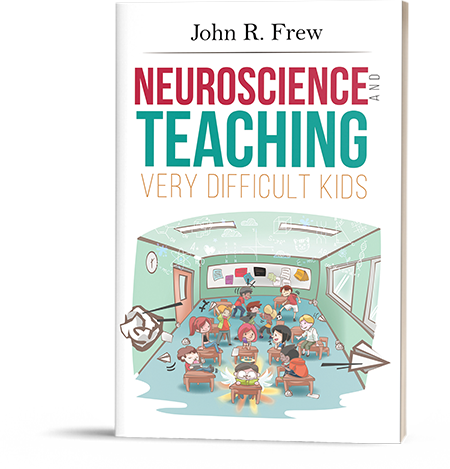

Teaching students whose behaviour is so ‘out of control’ is a challenge faced by all teachers in modern schools. Contemporary approaches have focused on dealing with the presenting behaviours and attempting to control those. This approach may deal with the problem in the short term but creates no long-term solution.
This work accepts that the majority of extremely dysfunctional behaviour is carried out by children who have suffered early, persistent trauma and/or neglect. Disruptive conduct can be explained by the effect their early childhood environment has had on the neural construction of their brain. These children are not ‘born bad’ but behave this way because of the ‘parenting’ they received in their early life. These are the children who have graduated out of these dysfunctional environments.
Recognising this provides the key to understanding how to deal with these kids. Because the social conditions created these problems, if we change those conditions, over time these children will develop different behaviours to get their fundamental needs met. The solution lies in the fact that everyone acts to get their needs met in the environment in which they live, so it makes sense to present an environment that demands different behaviours to satisfy these needs.
The book provides a description about how the early childhood environment creates the neural scaffold that drives dysfunctional behaviour and how developing a well-defined classroom environment will make a positive contribution to changing that behaviour.
Austin Macauley are one of the fastest-growing publishers, striving hard to give authors the best chance of succeeding in an increasingly crowded market. With headquarters in London, New York and Sharjah, Austin Macauley Publishers™ have established themselves as an energetic and innovative independent trade publishers.
+44 (0) 207 038 8212
+44 (0) 203 515 0352
mail@austinmacauley.com
Austin Macauley Publishers™ Ltd.
1 Canada Square, Canary Wharf,
London, E14 5AA
United Kingdom
